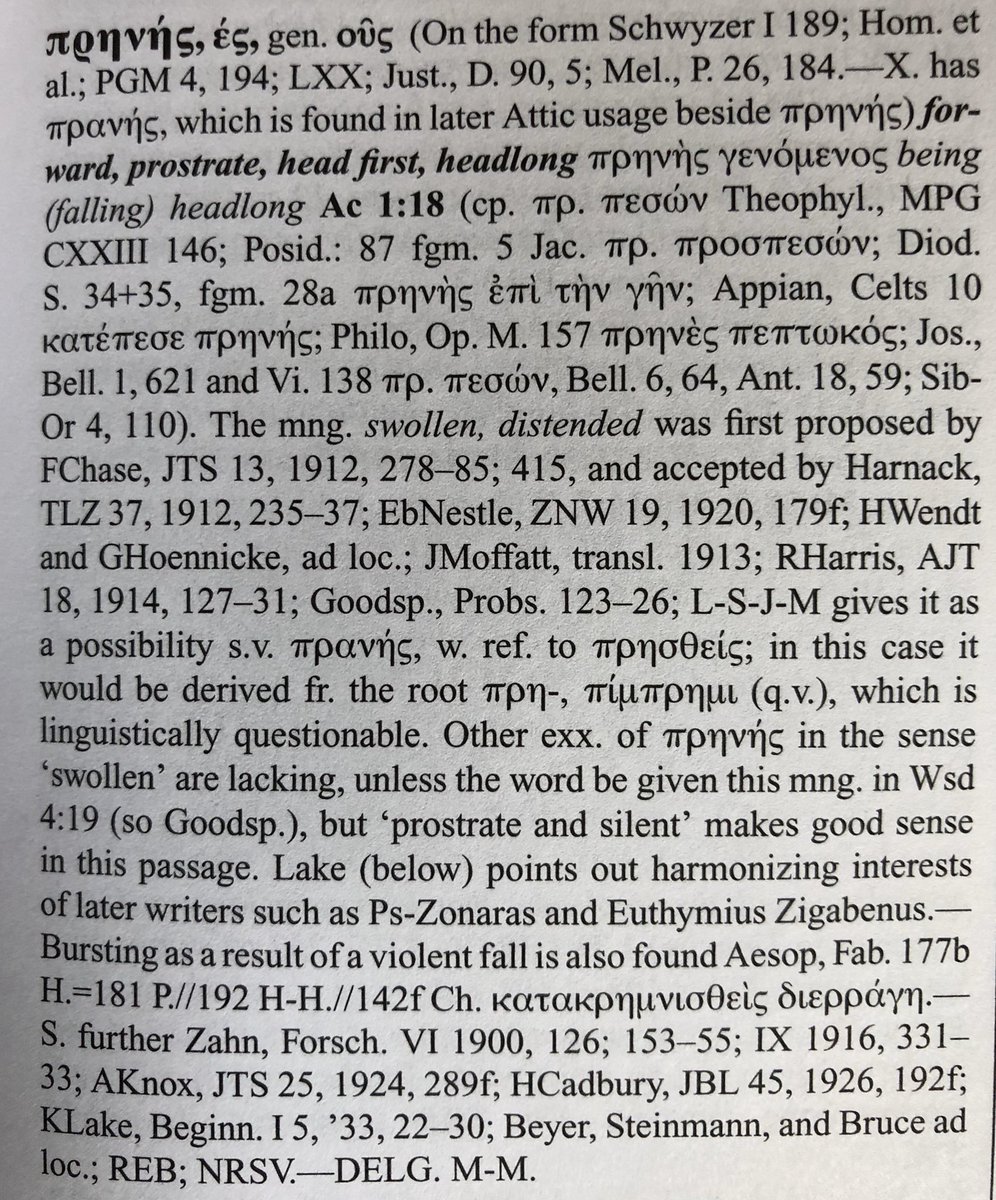In a recent debate with @BartEhrman
at 43-52 minutes we fell to discussing the mode of Judas’s death. Bart said that the accounts of Matthew & Acts were irreconcilable (& also reconcilable if you tried hard enough).
1. not challenging his substitution of my word ‘headlong’ by ‘headfirst’ at 46:48 & 48:52.
2. focussing on the lexeme in Matthew, not the one in Acts.
For instance, NONE of the earliest translations of Acts give the meaning ‘(falling) headfirst’.




I don’t know.
The data are underdetermined.
That was precisely my point to Bart (though I should have made it more clearly).
There are *numerous* possible scenarios in which both reports (Matthew & Acts) can be true. Why must I choose one?
It’s insufficient to show that each individual permutation which doesn’t hypothesise error is improbable, for their probabilities combine.
Let the one with ears to hear, hear.



























